
Janna Frenzel
PhD candidate in Communication Studies, Concordia University
BA Political Science from Free University Berlin, 2011
MA Political Science from Free University Berlin, 2014
Communication strategist and copywriter/editor at FLMH Labor für Politik und Kommunikation, Berlin
PhD student at Concordia University, Montreal (since 2019, candidacy since November 2022)
Less ![]()
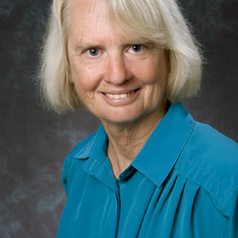
Janna Thompson
I am an expert on political philosophy. I have written books on reparative justice and intergenerational justice. I have also written extensively on environmental philosophy, feminism and international justice.
Less ![]()

Janneke Hille Ris Lambers
Professor of Environmental Systems Science, Swiss Federal Institute of Technology Zurich
Less ![]()


Jannet van der Veen
Visiting Fellow at the Center for Public Policy, Drexel University
Jannet van der Veen is a graduate student at Aarhus University in the department of Educational Anthropology.
Less ![]()

Jannsen Santana
Postdoctoral Researcher - Lifestyle Research Center, EM Lyon Business School
I am a researcher and educator in Marketing. Through ethnography and other qualitative research methods, my research covers the role of cultural belief structures (e.g., religion and environmental beliefs) in shaping consumer culture and behavior. My research identity is concentrated in three main areas, namely, Marketing and Consumer Culture, Sustainable Consumption and Production, and Religion/Spirituality. My recent work has appeared in outputs such as Marketing Theory, Journal of Marketing Management, and Qualitative Market Research.
Less ![]()

Janosch Heller
Assistant Professor in Biomedical Sciences, Dublin City University
Janosch is a German biologist who lives and works in Dublin. He studied biology in Germany before moving to the UK to complete a PhD in Clinical Neurosciences. After working as a scientist in London, Janosch moved to Dublin to join the Royal College of Surgeons in Ireland and more recently Dublin City University. Janosch is an Assistant Professor in Biomedical Sciences. He is researching how astrocytes change in diseases such as epilepsy and how we can target these cells as novel treatment options.
Less ![]()
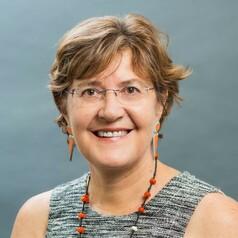
Janya McCalman
Professorial Research Fellow, Jawun Research Centre, CQUniversity Australia
Janya McCalman co-leads the Jawun Research Centre at CQUniversity with Prof Adrian Miller. She has longstanding research relationships with Aboriginal and Torres Strait Islander health, youth, education and other partner services, and her public health research focusses on how they provide services that enable resilience, empowerment and wellbeing through the development and evaluation of mental health and other complex interventions and/or the implementation of quality improvement approaches. Her methodological expertise lies particularly in participatory and action-oriented quality improvement research, grounded theory, systematic literature reviews, and research transfer and implementation. She has a Bachelor's degree in geography, a Masters degree in public health and a PhD in education. She received the Deans Award for her PhD.
Less ![]()

Jaq Prendergast
Lecturer in Horology, Birmingham City University
I trained in horology in 2008 until 2011. I worked within industry until I took the role of lecturer in Horology at BCU in 2022. Although I am trained on modern watches I always gravity towards the history and the invention, that made me want to take on the role as lecturer.
Less ![]()


Jara Pérez Jiménez
Doctora en Ciencia y Tecnología de los Alimentos. Científico Titular en el ICTAN-CSIC. Centro de Investigación Biomédica en Red en Diabetes y Enfermedades Metabólicas, Instituto de Ciencia y Tecnología de Alimentos y Nutrición (ICTAN - CSIC)
Jara Pérez Jiménez es Licenciada (2003) y Doctora (2007) en Ciencia y Tecnología de los Alimentos por la Universidad Autónoma de Madrid. Ha desarrollado su carrera investigadora en diversos centros de investigación en España y Francia y en la actualidad es Científico Titular en el Instituto de Ciencia y Tecnología de los Alimentos y Nutrición (ICTAN-CSIC), donde dirige el grupo de investigación “Polifenoles no extraíbles, antioxidantes y fibra dieté tica en salud”. Además, es miembro del Centro de Investigación Biomédica en Red en Diabetes y Enfermedades Metabólicas.
Las investigaciones en las que ha participado la Dra. Pérez, centradas en el estudio de compuestos bioactivos de la dieta, han dado lugar a 85 artículos publicados en revistas científicas internacionales con una alta repercusión (> 7.000 citas, índice h: 37). Además, la Dra. Pérez es coinventora de una patente licenciada a una empresa nacional, ha sido coeditora de un libro editado por la Royal Society of Chemistry (Reino Unido) y fue miembro del Comité de Expertos en Nutrición Humana de la Agencia Francesa de Seguridad Alimentaria (2015-18).
La Dra. Pérez fue incluida en 2012 en una selección de cien jóvenes investigadores españoles para un encuentro con Premios Nobel, en 2014 en una selección de diez investigadores europeos para participar en el Programa Avanzado para el Liderazgo en Nutrición y en 2019 en un Ciclo de Conferencias de Jóvenes Investigadores en la Real Academia Española de Medicina. Así mismo, su actividad regular como divulgadora científica ha sido reconocida, entre otros, por la Real Sociedad Española de Química.
Less ![]()
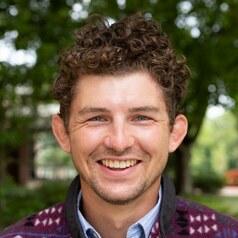
Jared Adam
Master's Student in Entomology, Penn State
I received my bachelors degree from PSU in the 2019 with a degree in Plant Science, Agroecology option with minors in entomology, international agriculture, and soil science.
At present, I am pursuing a master’s degree at PSU in the entomology department. I am most interested in understanding how our current agricultural practices are affecting our most vulnerable arthropod populations. I work on quantifying agroecosystem health and investigate how current agronomic practices shape above and below ground arthropod communities.
Less ![]()
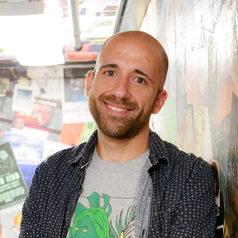
Jared Bahir Browsh
Assistant Teaching Professor of Critical Sports Studies, University of Colorado Boulder
I am a media and popular culture scholar with a particular focus on analyzing sports and television from a political economic perspective. I am currently working on a textbook on the experience of African Americans in Sports
Less ![]()


Jared McDonald
Assistant Professor of Political Science and International Affairs, University of Mary Washington
I am an assistant professor in the Department of Political Science and International Affairs at the University of Mary Washington, where I teach courses related to American government, political behavior, public policy, and research methodology. I am a co-author of Citizens of the World: Political Engagement and Policy Attitudes of Millennials across the Globe (Oxford University Press, 2022), and author of Feeling their Pain: Why Voters Want Leaders who Care (Oxford University Press, forthcoming). Broadly, my research asks how American voters evaluate politicians and hold them accountable in an environment increasingly characterized by high levels of polarization and strong partisan identities.
Less ![]()

Jared Ragland
Assistant Professor, Photography, Utah State University
Jared Ragland is a fine art and documentary photographer and former White House photo editor. He currently serves as Assistant Professor and Photography Area Coordinator at Utah State University. His collaborative, socially-engaged work critically confronts issues of identity, marginalization, and the history of place.
Less ![]()

Jared J. Finnegan
Lecturer in Public Policy, UCL
I am a Lecturer in Public Policy at UCL. Before that, I was a S.V. Ciriacy-Wantrup Postdoctoral Fellow at UC Berkeley and a Postdoctoral Fellow at the Niehaus Center for Globalization and Governance at Princeton University. I have also been a Visiting Fellow at the Grantham Research Institute on Climate Change and the Environment at the London School of Economics and Political Science (LSE).
I earned my PhD in Political Science in 2019 from LSE. I hold an MRes in Political Science and an MSc in Philosophy and Public Policy from LSE and a BA in Latin American and Latino Studies and Sociology from UC Santa Cruz.
Less ![]()

Jared L. Talley
Assistant Professor of Environmental Studies, Boise State University
I was born and raised in the Southwestern Idaho, like many generations before me, and I am deeply connected to these desert communities. My research is place-based and focuses on community collaboration in the environmental governance of the American West. I am environmental philosopher by training, but an interdisciplinary scholar by practice. I seek to better understand how diverse communities relate to the land and how this relationship poses obstacles and opportunities for collaboration and governance. In doing so, I study the role of science in collaborative policy, the role of place in environmental identity, and the role of the imagination in mediating both.
Healthy land requires healthy communities (not only human) that dwell on it. Part of being a healthy community is being a resilient community — one that is able to withstand and adapt to the changing circumstances that are all too common in our contemporary era. Helping rural communities amplify their voice in collaborative spaces allows these communities the self-determination that is needed to adapt to a changing world. The relationships built and the sheer experience of collaborating builds the resilient capacity that is needed by these communities — collaboration, itself, is a resilient praxis.
Specifically, I study grazing management and public land permitting, community-led monitoring programs, place-based environmental governance, rural environmental collaboration, conservation justice, and the imaginative experience of our natural and built environments — all in the contexts of the intermountain American West.
Less ![]()

Jarrad Daniel Kowlessar
Associate Lecturer, Flinders University
I am a researcher in Archeology, Geospatial Science and Machine Learning. I hold a PhD in Archaeology as well as a Masters in Maritime Archaeology and an Honors Degree in Applied Geographic Information Systems (GIS). I have 11 publications in the areas of Archaeology, GIS, Remote Sensing, Geophysics and Machine learning. I currently teach and research at Flinders University.
Less ![]()

Jarred Lloyd
Postdoctoral research fellow, University of Adelaide
I am a geologist whose research is currently centered on lithium pegmatites. I am working to develop geochronological techniques (methods to determine how old things are) to help us better understand the distribution of these rocks through Earth's 4.6 billion year history, I also am working to understand various chemical and physical characteristics of the minerals in these pegmatites through several different methods.
My research training background was in geochronology, stratigraphy, sedimentology, tectonics, and provenance analysis. Using these subfields of geology, I studied the past evolution of the Adelaide Superbasin (Flinders, Mount Lofty, and Barrier ranges) of South Australia and New South Wales.
Aside from a love of geology because of how it is allows us to read the history book of Earth and understand its ever changing, dynamic nature, I am an avid photographer, and a keen supporter of open science.
Less ![]()


Jarred H Martin
Senior Lecturer in Clinical Psychology, University of Pretoria
Dr Jarred H Martin, PhD, is an early-career researcher and senior lecturer in Psychology at the University of Pretoria, South Africa. He teaches at undergraduate and postgraduate levels, manages the postgraduate degree programme in Clinical Psychology, and supervises postgraduate student research in critical studies of gender/s and sex/uality/ies. His research concentrates on critical studies of bodies, gender/s, and sex/uality/ies, with a specific interest in sex-positive and critically-inflected studies of erotic subjectivity and practice in communities of kink. In addition to this, he sits on the Executive Committee for the Sexuality and Gender Division of the Psychological Society of South Africa.
Less ![]()

Jarrod Santora
Research Associate, Institute of Marine Sciences and NOAA-NMFS Fisheries Ecology Division, Southwest Fisheries Science Center, University of California, Santa Cruz
Less ![]()

Jarrod Sopniewski
PhD student, The University of Western Australia
Jarrod has published on the impact of chytrid fungus on Australian amphibians.
Less ![]()

Jarryd Daymond
Lecturer, University of Sydney
Dr Jarryd Daymond is a Lecturer in Strategy and Innovation at The University of Sydney Business School, a Fellow of the Higher Education Academy, a Sydney Nano Institute Early Career Researcher Ambassador, and formerly a Strategy Research Foundation Dissertation Scholar of the Strategic Management Society. He researches and teaches at the intersection of strategy, innovation, and research commercialisation and collaboration. Jarryd’s current research projects examine how world-leading nano scientists and engineers translate science breakthroughs into new technologies and businesses; how innovation ecosystems enable or hinder “deep tech” commercialisation; and how strategic change and innovation occurs in and between organisation via practices, strategy tools, visuals, artefacts, and materials.
Less ![]()

Jas M. Morgan
Assistant Professor of Indigenous Communication, Identity and Community, Simon Fraser University
Less ![]()

Jasmin Kirkbride
Lecturer in Publishing, University of East Anglia
Dr Jasmin Kirkbride is a Lecturer in Publishing at City, University of London, and Humanities Visiting Research Fellow at UEA. Her PhD in Creative and Critical Writing from UEA, which she completed with no corrections in 2023, explored radical hope in dystopian climate fiction.
As well as being an academic, Jasmin is a science fiction author and poet. Her short fiction has appeared in places including Reactor, Fictive Dream, and on the cover of Open Pen, and her story ‘Sand’ was featured in Some of the Best from Tor.com 2021. She is represented by Alex Cochran at C&W. Her poetry has appeared in Presence, Frogpond, and Blithe Spirit, and been shortlisted for the Museum of Haiku Literature Award 2019, and the Snapshots Press Haiku Calendar 2021 Competition. Jasmin was the Researcher-in-Residence for the British Haiku Society 2022, producing the archival research paper 'Twisting Point: the evolution of haiku in the climate crisis', and presenting it as Keynote at the Society’s Winter Gathering.
Jasmin's role as a Lecturer in Publishing at City, University of London sees her teaching Publishing, Creative Writing, and English Literature at UG and PG levels. Her research interests include hope in climate fiction, dystopian and utopian instincts in genre fiction, and intercultural concepts of time in the environmental novel. Her peer-reviewed articles have been published in journals including The Cormac McCarthy Journal and LOGOS, and she is currently co-editing 'Epochs, Ages, and Cycles', a Special Edition of the ASLE-UKI Journal Green Letters: Studies in Ecocriticism. She has presented at several conferences, including the ASLE-UKI Biennial Conference 2022 and 2023, and UEA/EACWP CW50 Futures for Creative Writing International Conference 2021. She is currently the Secretary and Podcast Co-Host for the Association for the Study of Literature and Environment, UK and Ireland (ASLE-UKI).
In 2019, Jasmin graduated from an MA Creative Writing: Prose Fiction at UEA. Her short fiction has appeared in magazines including Tor.com, Failight Books, and as the cover-story of Open Pen. Her ecocritical poetry has been published in magazines including Presence, Blithe Spirit and Frogpond, and was shortlisted for the 2019 Museum of Haiku Literature Award. She was the 2022 Research-in-Residence for the British Haiku Society, working on a creative archival project called Twisting Point: the evolution of haiku in the climate crisis, which featured as the Keynote for the Society's Winter Gathering 2023.
Previously, Jasmin worked in publishing, notably as a book trade journalist for industry magazine BookBrunch and as the Publishing Director at Endeavour Media. As an novel editor, she has worked with publishing houses from indie literary presses such as Boiler House Press and Weatherglass Books to commercial genre imprints such as Rebellion. This has included work on a Pulitzer-winner, a Booker-longlistee, BBC Books of the Week, and Amazon top ten bestsellers. She's worked with authors who’ve won the Caine Prize for African Writing and been shortlisted for the Booker International. Her journalistic work has appeared in Time Out and Publisher's Weekly amongst others, and she is the author of a four-book self-help series (Summersdale, 2016-2017), which is internationally available in multiple languages. She continued engaging with the publishing industry throughout her PhD, for instance via her CHASE-funded placement at the journal English.
Less ![]()

Jasmin Packer
Research Fellow in Wildlife Conservation, University of Adelaide
Jasmin is passionate about protecting Australia's threatened communities and species. Her research aims to design innovative solutions, linking world-leading science with on-ground management, to better protect South Australia’s threatened communities and species as they adapt to global change. She works with wildlife as well as flora and fungi, and is the Vice President of Fungimap Inc., Austalia's national citizen science-led NGO for fungi.
Jasmin’s transdisciplinary research focuses on understanding how ecosystems respond to differing disturbance and other global changes - and what we can do to enhance their capacity to cope with the negative impacts. Her transdisciplinary approach bridges basic and applied research, and co-designs field surveys with industry partners to ensure their findings are put into action to make a difference for conservation. Jasmin uses design thinking to draw on her deep understanding of the needs of others, and brings together global (biogeography and invasion science) and local (community ecology, population ecology and citizen science) approaches, to build long term partnerships that have a real impact on improving biodiversity conservation.
Less ![]()


Jasmin Lilian Diab
Assistant Professor of Migration Studies; Director of the Institute for Migration Studies, Lebanese American University
Dr. Jasmin Lilian Diab (she/هي) is a scholar and expert in Migration, Gender and Conflict Studies. Dr. Diab is the Director of the Institute for Migration Studies (IMS) at LAU, where she also serves as an Assistant Professor and Coordinator of Migration Studies at the Department of Communication, Mobility and Identity (CMI).
Dr. Diab is a Research Affiliate at the Centre for Refugee Studies at York University and a Global Fellow at Brown University’s Center for Human Rights and Humanitarian Studies. As of 2024, she is a Visiting Professor in Migration Studies at Sciences Po Lyon.
Prior to her position at LAU, Dr. Diab served as the Refugee Health Program Coordinator and Research Associate in Political Economy of Health in Conflict at the Global Health Institute at the American University of Beirut (2019-2021), and Research and Project Manager at the Lebanese Emigration Research Center at the Faculty of Law and Political Science at Notre Dame University-Louaize (2013-2019). She holds a PhD in International Relations with an emphasis on Refugees, Asylum and Security from HEIP’s Center for Diplomatic and Strategic Studies (CEDS) in Paris, France.
Her research has been awarded the Center for Human Rights and Humanitarian Studies Seed Grant from Brown University (2023), as well as the Williams Institute LGBTI Global Small Grant from the University of California, Los Angeles’ School of Law (2023).
Dr. Diab serves as an Editorial Board Member for Refugee Survey Quarterly, Frontiers in Sociology - Migration and Society and PLOS Global Public Health where she also serves as Guest Editor in ‘Humanitarian Aid, Conflict and Migration’. She is also an Advisory Board Member ‘Migration, Displacement, and Development’ Book Series.
In addition to serving on the boards of organizations working in the migration and development space, Dr. Diab has completed 100+ consultancies for UN Agencies, international humanitarian organizations and governments, evaluating humanitarian programming, leading research in conflict settings, leading gender analyses, and developing strategic plans for organizations targeting hard-to-reach areas and displaced populations across the MENA region.
Less ![]()
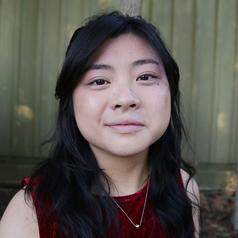
Jasmine Chan
Associate Research Fellow, Food Policy, Deakin University
Jasmine is an Associate Research Fellow at the Global Centre for Preventive Health and Nutrition, Deakin University. Her research focuses on food company policies, actions and corporate reporting on nutrition, and healthy food environments in retail and university campus settings.
Less ![]()
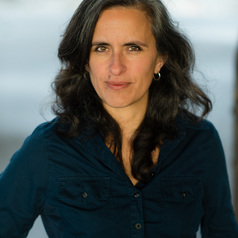
Jasmine Donahaye
Professor in English Literature and Creative Writing, Swansea University
I graduated from UC Berkeley's Celtic Studies programme in 2000, and after gaining a PhD in English at Swansea in 2004, I worked in publishing, including as editor of the cultural journal Planet. I have taught Creative Writing at Swansea University since 2010, and am a fellow of the HEA and of the Learned Society of Wales. My books include Birdsplaining (2023); Losing Israel (2015); The Greatest Need (2015); Whose People? Wales, Israel, Palestine (2012); Self-portrait as Ruth (2009), and Misappropriations (2006).
Less ![]()
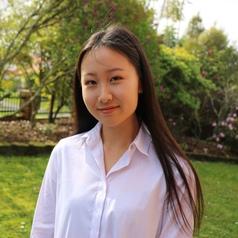


Jasmine Travers
Assistant Professor of Nursing, New York University
Jasmine L. Travers is an assistant professor of nursing at NYU Rory Meyers College of Nursing. Her career is dedicated to designing and conducting research to improve health outcomes and reduce health disparities in vulnerable older adult groups using both quantitative and qualitative approaches. Her current work focuses on mitigating disparities in appropriate access and use of in-home and facility-based long-term care for older adults (i.e., home & community-based settings, nursing homes, and assisted living).
Currently, Travers is the principal investigator of a Robert Wood Johnson Foundation four-year Career Development Award through the Harold Amos Medical Faculty Development Program which she is examining the association of neighborhood disadvantage with nursing home outcomes using large-scale nursing home data and a Paul B. Beeson Emerging Leader five-year K76 Award through the National Institute on Aging which in this mixed-method study she will develop a survey instrument aimed to identify unmet needs that are disproportionately driving avoidable nursing home placements.
Most recently, Travers served on the National Academies of Science Engineering and Medicine Committee on the Quality of Care in Nursing Homes which on April 6, 2022, released the widely anticipated report titled, The National Imperative to Improve Nursing Home Quality.
Travers has published widely on the topics of aging, long-term care, health disparities and inequities, workforce diversity and workforce issues, vaccinations, and infections. She has presented her work at regional and national health services research, gerontological, nursing, and public health conferences.
Prior to joining the faculty at NYU, Travers completed a postdoctoral fellowship with the National Clinician Scholars Program at Yale University and a T32-funded postdoctoral fellowship at the New Courtland Center for Transitions and Health at the University of Pennsylvania School of Nursing.
Travers received her Ph.D. at Columbia University School of Nursing, MHS at Yale University, MSN in Adult-Gerontological Health at Stony Brook University, and BSN at Adelphi University.
Less ![]()
- Market Data























